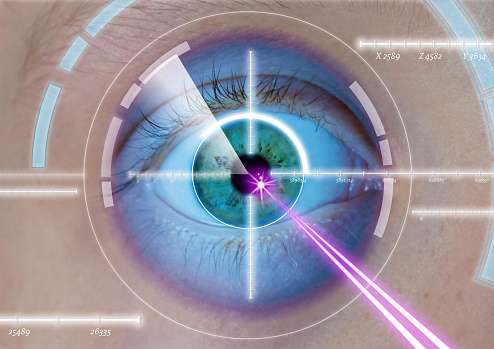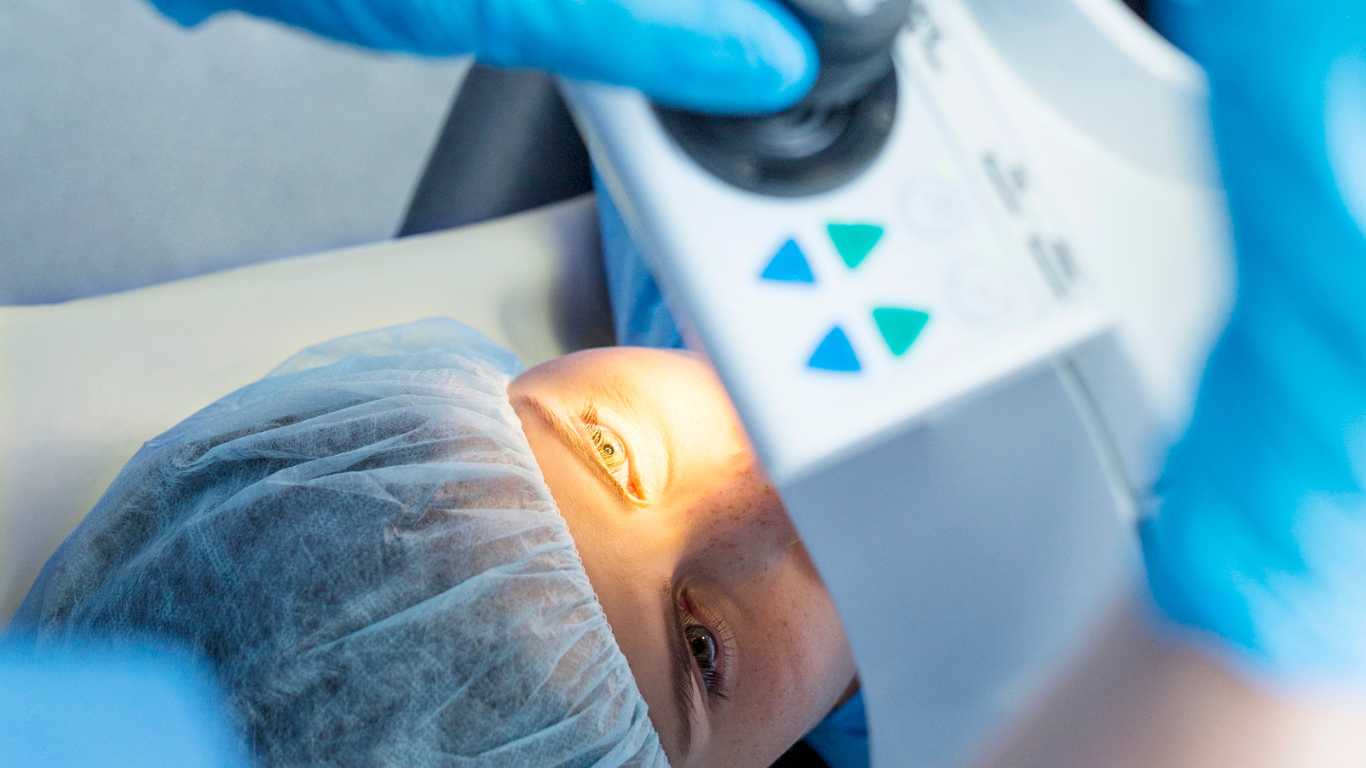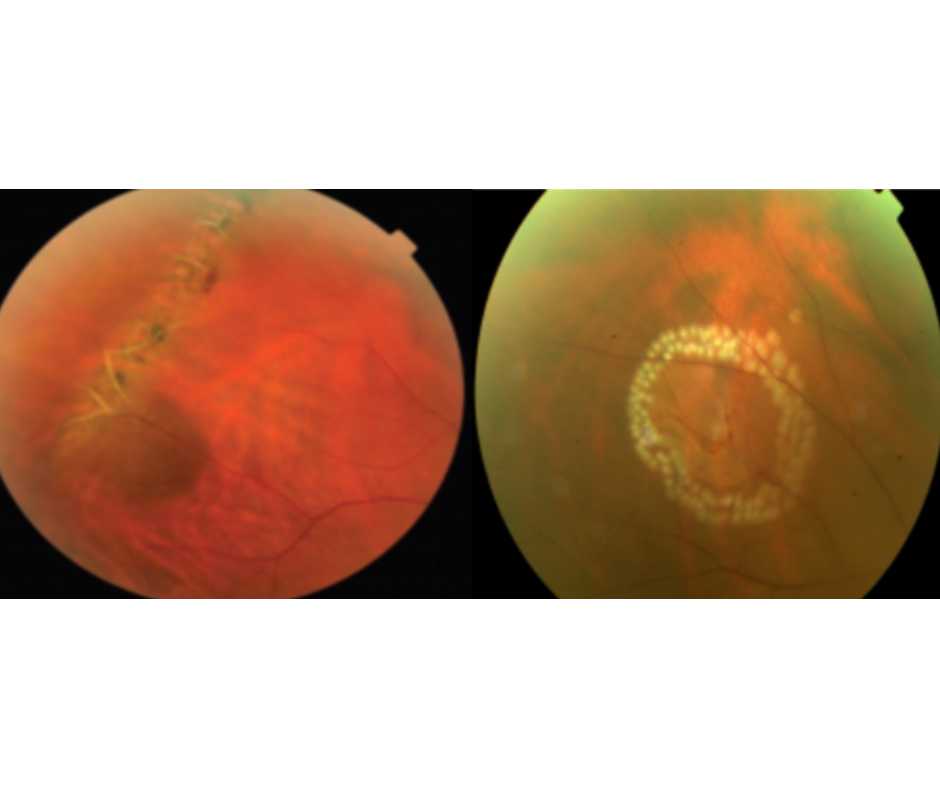Understanding Laser Eye Surgery:
Laser eye surgery, particularly LASIK, is a procedure designed to reshape the cornea, the clear front part of the eye. By reshaping the cornea, light entering the eye can be properly focused onto the retina, resulting in improved vision. LASIK has gained immense popularity for its quick recovery time and remarkable visual outcomes. lets explore Is laser eye surgery 100% safe?.
The Evolution of Laser Eye Surgery:
Over the years, laser eye surgery has undergone significant advancements. From the initial excimer lasers to the introduction of femtosecond lasers, these technological innovations have contributed to safer and more precise procedures.

The Safety of Laser Eye Surgery: A Critical Evaluation
Pre-Surgery Evaluation
Before undergoing LASIK, patients are subjected to a comprehensive eye examination to determine their suitability for the procedure. This evaluation includes assessing the corneal thickness, pupil size, and refractive errors. Not everyone is a candidate for LASIK, and this initial assessment is crucial in ensuring patient safety.
The Surgical Procedure
During the LASIK procedure, a microkeratome or femto second laser is used to create a thin flap in the cornea. The excimer laser then reshapes the underlying corneal tissue. While the procedure is relatively quick, it demands precision and expertise from the surgeon.
Post-Surgery Recovery
Most patients experience a rapid improvement in their vision following LASIK. However, the post-surgery recovery period is essential. It involves following the surgeon’s instructions meticulously to minimize the risk of complications.
Common Misconceptions About Laser Eye Surgery
Despite its widespread success, laser eye surgery is not immune to misconceptions. One common misconception is that LASIK guarantees perfect vision for life. In reality, while LASIK can dramatically improve vision, it does not guarantee 20/20 vision indefinitely.
Potential Risks and Complications:
As with any medical procedure, laser eye surgery carries certain risks and potential complications. It’s vital for patients to be aware of these potential issues before making the decision to undergo LASIK.
Dry Eyes:
Dry eyes are a common side effect of LASIK, and they typically resolve with time and the use of prescribed eye drops.
Halos and Glare:
Some patients may experience halos and glare, especially when driving at night. These symptoms often improve over the course of a few months.
Fluctuating Vision:
In some cases, vision may initially fluctuate before stabilizing to the intended level of clarity.
Infection:
Although rare, infection is a possible complication. Strict adherence to post-surgery care instructions helps minimize this risk.
Undercorrection and Overcorrection:
In some cases, the desired vision correction may not be fully achieved. This can be addressed through enhancement procedures.
The Importance of Choosing a Skilled Surgeon
The competence and experience of the surgeon are paramount in ensuring the safety and success of laser eye surgery. Patients should thoroughly research and choose a board-certified ophthalmologist with a proven track record.
Factors Contributing to Surgical Success
Several factors contribute to the success of laser eye surgery, including patient selection, precise measurements, and advanced technology. When these elements align, the likelihood of achieving optimal results increases significantly.
Real-Life Experiences: Patient Testimonials
To gain insight into the safety of laser eye surgery, it’s valuable to hear from individuals who have undergone the procedure. Many LASIK patients report high levels of satisfaction with their results.
Is laser eye surgery 100% safe?
Recent Technological Advancements
Continual advancements in laser technology and surgical techniques have led to even safer and more precise laser eye surgeries. These innovations enhance the overall patient experience.
Is Laser Eye Surgery Suitable for Everyone?
Laser eye surgery may not be suitable for individuals with certain medical conditions or unrealistic expectations. Consulting with an experienced ophthalmologist is the first step in determining suitability.
Conclusion:
In conclusion, laser eye surgery, specifically LASIK, has revolutionized vision correction, offering a life-changing solution for many individuals. While it is generally safe and effective, it is not without risks. Patients should make the decision to undergo LASIK after carefully considering and consulting with a qualified surgeon.With the right surgeon, proper evaluation, and adherence to post-surgery instructions, the vast majority of patients experience improved vision and enhanced quality of life.
FAQs:
What is the success rate of laser eye surgery?
The success rate of laser eye surgery, particularly LASIK, is quite high, with the majority of patients achieving improved vision. However, individual results may vary.
How long does it take to recover from LASIK?
Most patients experience significant improvement in their vision within the first few days to weeks after LASIK. Full recovery typically takes several weeks, during which patients should follow their surgeon’s instructions.
Can laser eye surgery correct astigmatism?
Yes, LASIK and other laser eye surgery procedures can effectively correct astigmatism, along with other refractive errors like nearsightedness and farsightedness.
Are there age restrictions for laser eye surgery?
Although there are no strict age restrictions, ophthalmologists generally recommend LASIK for individuals over the age of 18 when their vision has stabilized. Consultation with a surgeon is essential to determine suitability. In most cases, insurance does not cover laser eye surgery because it is considered an elective procedure.













